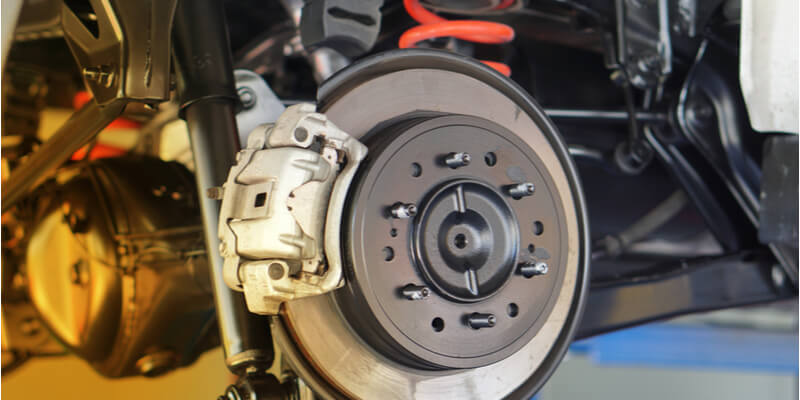Brake problems are certainly not something that should be taken lightly: if left unresolved, a faulty braking system could result in a severe car accident and endanger not only your life but the lives of other drivers. This is why it’s so important to ensure that you know the warning signs of faulty brakes and have any issues fixed as soon as possible. Read on for our guide on how to diagnose brake problems, which will cover common brake problems and how to spot them, as well as answer common questions about brake problems.
How To Diagnose Brake Problems: Our Guide
The team at our Porsche service centre in Milton Keynes are highly trained and experienced servicing vehicles, with a speciality for German cars such as Porsche, Mini and BMW. If you are having issues with your vehicle and need the help of a professional, please do not hesitate to get in touch with our team.
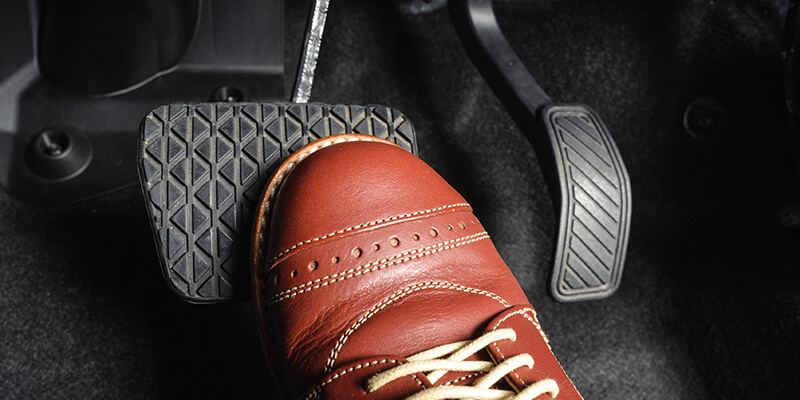
Common Brake Problems And How To Spot Them
It is essential to familiarise yourself with the signs of common brake problems in order to catch and fix issues early and reduce the risk of car accidents.
Worn Out Brake Pads
Brake pads are a crucial part of the braking system. When you brake, a hydraulic system is used to press these pads against the rotor, causing friction and slowing your vehicle. Worn-out brake pads can become extremely dangerous if not replaced efficiently. This is why it’s absolutely essential to look out for warning signs that your brake pads are worn – these are as follows:
- Your car alerts you – thankfully, many cars come equipped with brake pad sensors which will alert you with a notice on your dashboard when your brake pads are starting to wear out.
- Professional assessment – it is vital to have your brake pads inspected and assessed for wear and tear by a professional frequently, especially if your car doesn’t have sensors.
- Visual signs – between professional services, by peering through the spokes of your wheel, you may be able to see the outer brake pad. This should be over 3mm thick – get your pads professionally assessed if it is any thinner.
- Screeching sounds – if you hear screeching sounds coming from your brakes, you must have your brake pads professionally inspected as soon as possible as you will likely need a replacement.
- Grinding sounds – if you notice a grinding sound when you brake, you should stop driving your vehicle as your brake pads have most likely worn down completely and will need replacement.
- Vibrating brake pedal – the brake pedal may vibrate when you press it with your foot if your brake pads are damaged.
- Car pulls to the side when braking – this can be caused by uneven wear to different sets of brake pads due to an imbalance in braking efficiency.
If you notice any of these warning signs while braking, it is crucial that you have the brakes of your vehicle checked by a professional. If you are in need of specialist BMW diagnostics in Milton Keynes, please do not hesitate to get in touch with our team today.
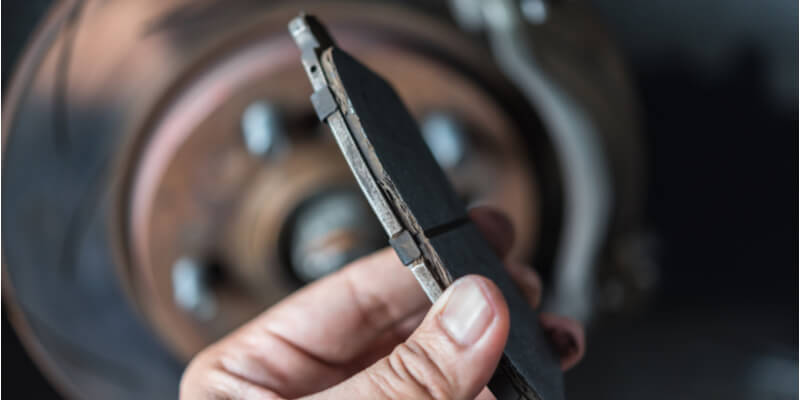
Leaky Braking System
Brake fluid is vital to the proper functioning of the hydraulic system of your brakes, so if it is leaking from your car, you have a problem. It is important to keep your eye out for signs that your brake fluid is leaking at all times so that you can repair the issue as soon as possible after its occurrence. The main things to look out for are as follows:
- Dashboard brake fluid indicator – if your dashboard brake fluid indicator is lit up, it’s likely that your braking system is leaky.
- Fluid pools under your car – the most obvious sign of a leaky braking system is if you can see a pool of brake fluid (yellowish or brownish in appearance) beneath your car.
- Spongy brake pedal – if your brake pedal feels soft or spongy when you press on it, you must immediately stop driving. This can happen when brake fluid leaks from the master cylinder, allowing air to enter and reducing your braking power.
- Low reservoir after top-ups – should your brake fluid reservoir be low despite a recent top-up, it’s highly likely that the hydraulic system in your brakes is compromised. This is especially important to pay attention to, even if you notice no external signs of a leak, as the leak may be internal.
Should you notice any of these things, it is imperative that you stop driving your car right away and have it looked at by a mechanic in order to prevent a serious accident from occurring. The staff members at our BMW service centre in Milton Keynes are fully trained and experienced in diagnosing and fixing leaky braking systems. You can get in touch with our team if you have any questions about our services or would like to find out more.
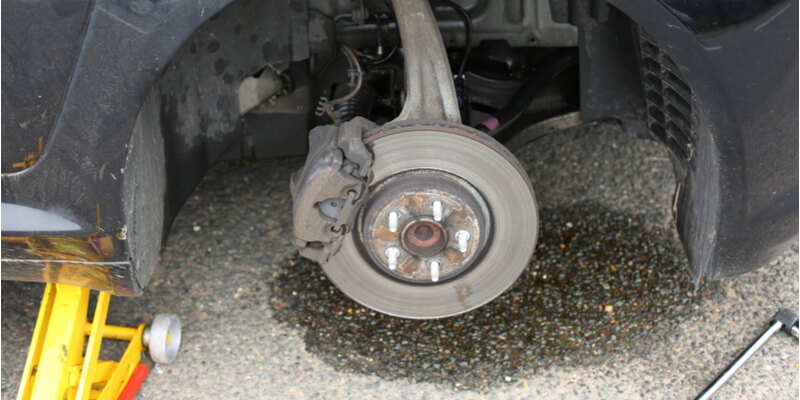
Worn Out Rotor
The rotor or braking disc works alongside the brake pads to slow and stop your vehicle when you brake. This component of your car is especially prone to wear and tear: when this occurs, its surface becomes uneven, which can cause issues. Therefore, it is essential to know and be able to spot the signs that your rotor is worn out and in need of repairs or replacement. These are as follows:
- Squealing sounds – when the surface of the brake rotor becomes uneven, you may start to hear squealing sounds from your brakes when you put pressure on them and possibly when you drive normally, too.
- Increased stopping times – if your rotor develops an uneven surface, the friction between the braking pads and rotor decreases, meaning that your car will take longer to slow down.
- Shaking steering wheel while braking – an uneven or jagged rotor can cause your steering wheel to vibrate or shake when you press the brakes.
- Vibrating brake pedal – you may also be able to feel the effects of an uneven rotor in the brake pedal.
- Loud banging while braking – if you hear any loud banging noises while braking, your rotor could be severely damaged or broken, and you should stop driving straight away.
All of these signs are reasons to have your vehicle checked by a mechanic as soon as possible, as your rotor likely needs to be replaced. Some people may prefer to have their rotor repaired by having it resurfaced. This is an option but should only be done by highly trained and experienced professionals because if the rotor surface is even slightly uneven, you may still experience the effects of this, such as a vibrating steering wheel.
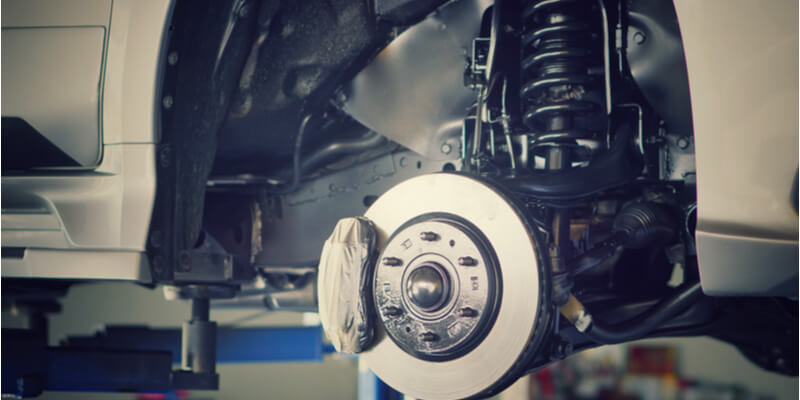
Defective Calliper
The function of brake callipers is to squeeze the brake pads against the rotor when you brake, slowing and stopping the car. If there is a problem with one of your brake callipers, your ability to brake can be impaired, which can be extremely dangerous. Pay attention to the following signs that something could be wrong:
- Squealing sounds – a faulty calliper may cause a squealing sound while you drive, not whilst the breaks are engaged, as expected in the case of faulty brake pads.
- Uneven brake pad wear – if your brake pads vary in thickness, there is likely a problem with your calliper.
- Clunking sounds – though it is an unlikely occurrence, it is possible for the calliper bracket to break and cause a loud clunking sound. You should immediately stop driving if this occurs.
- Car pulls to the side – if your vehicle pulls to one side while you are braking (and sometimes when you are not), there may be a problem with your calliper. It may have frozen up due to trapped debris or build-up such as corrosion, causing it to lock up and keep the brake pads and rotor either engaged or disengaged.
If you notice any of these signs of a faulty calliper, it is time to have your car checked over by a professional. The staff at our Porsche service centre in Milton Keynes have the necessary training and experience to diagnose and fix problems with your calliper, whether you’ve noticed squealing sounds as you drive or unevenly-worn brake pads. Why not get in touch with our team today to find out more?
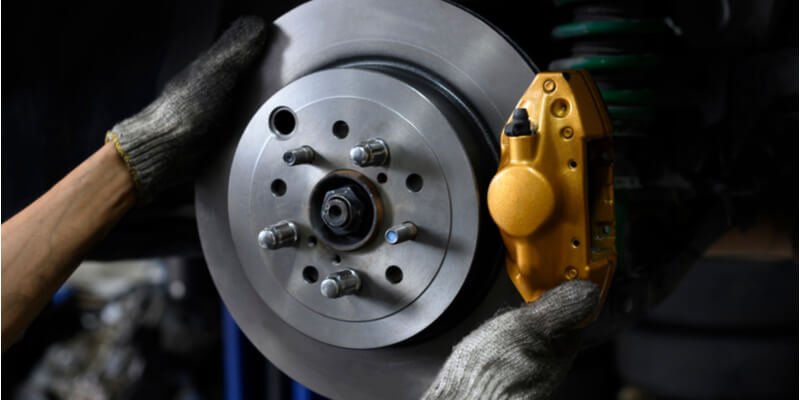
Brake Problem FAQs
Here are the answers to common questions people have about brake problems:
Are Rusty Brake Discs A Problem?
Yes, rust on the brake disc or rotor is a cause for concern once it goes beyond a small amount of surface rust. If left for too long, rust can corrode and damage the brake disc, causing problems with braking. Find out more about this on WapCar.
Are Rusty Brake Callipers A Problem?
Again, while surface rust on callipers is not an immediate cause for concern, should it progress to more extensive rust, dangerous braking issues could develop.
Can Low Battery Cause Brake Problems?
So long as your engine is working properly, your car battery should not affect the brakes unless your brakes are electric.
Can Low Brake Fluid Cause Clutch Problems?
Yes, if you are low on brake fluid, your clutch can stop working properly. Head over to doityourself to find out more.
Can A Bad ABS Sensor Cause Brake Problems?
Yes, if your ABS sensor is bad, you may experience brake problems such as a vibrating brake pedal when the brakes are engaged, and the anti-lock brake system may fail.
Can A Bad Wheel Bearing Cause Brake Problems?
Wheel bearings hold brake discs in place, so yes, a bad wheel bearing can cause brake problems.
Can Alignment Cause Brake Problems?
Yes, braking, as well as engine performance and tire wear, can be negatively affected by incorrect wheel alignment.
Are Squeaky Brakes A Problem?
There are several reasons why your brakes may be squeaky, and all of them are worth taking your vehicle to a professional to look over.
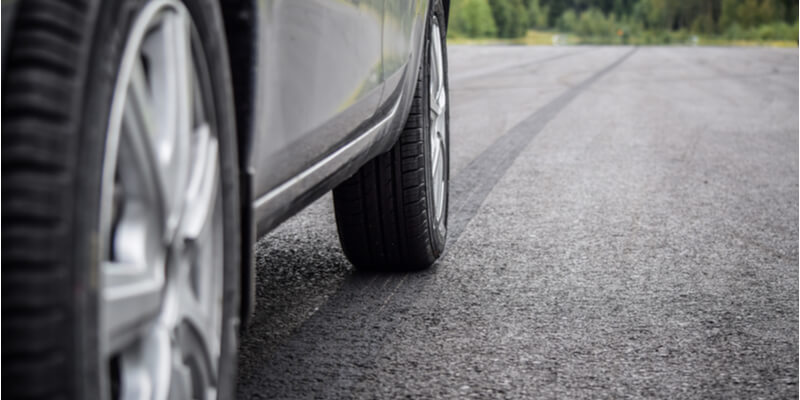
Have Your Brake Problems Accurately Diagnosed And Fixed
We hope that our article has helped to inform you not only about common brake problems but also on how you can spot and diagnose them. It is absolutely essential that you have any issues with your brakes fixed as soon as possible in order to avoid a major car accident. If your brake system is in need of evaluation, repairs, or replacements, please feel free to get in touch with our team about coming into our BMW service centre in Milton Keynes. Our team are highly capable and will be able to identify and amend any issues with your vehicle to get it back up and running in no time. For more tips on keeping your vehicle safe, check out our previous article.

